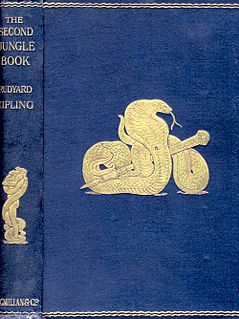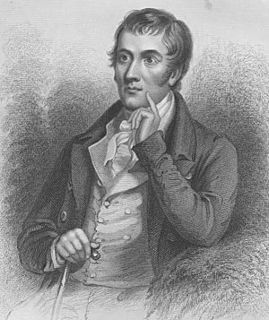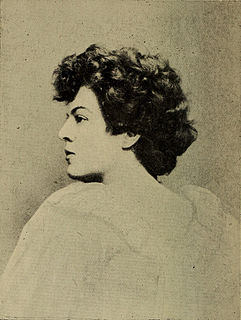External links
- The Song of Three Friends at the Internet Archive.
 The Song Of Three Friends public domain audiobook at LibriVox
The Song Of Three Friends public domain audiobook at LibriVox - The Song of Hugh Glass at the Internet Archive.
 The Song of Hugh Glass public domain audiobook at LibriVox
The Song of Hugh Glass public domain audiobook at LibriVox
A Cycle of the West is a collection of five epic poems (called "Songs") written and published over a nearly thirty-year span by John G. Neihardt. As one extended work of literature, the Cycle treats historical topics from the American settlement of the Great Plains and the displacement of the Native American cultures there.
Each poem is written as enjambed heroic couplets in several chapters. As Neihardt gained experience with the form, he began to close chapters, and often verse paragraphs, in the middle of a line, with the first line of the next chapter completing both the suspended line and rhyme. The effect is to pull the speaker forward until the only completely resolved couplet is the one at the end of the Song.
By internal chronological order, the five songs are (with the date of first)
This poem comprises eight cantos.
The story begins in 1822—and follows an expedition of Major Andrew Henry during a series of arduous journeys over the Trans-Missouri region: following the Grand, Missouri and Yellowstone Rivers.
The poem examines the exploits of three trappers—Will Carpenter, Mike Fink, and Frank Talbeau—who through shared experiences have developed a close friendship. But the bonds of friendship uniting the trio explode after Will succeeds in wooing the Indian girl who had stolen Mike's heart. Mike's jealously leads to murder: the remaining cantos complete the narrative, in which only one of the original three will survive to tell the tale. [1]
This poem comprises five cantos.
The story begins in 1823—just after the Leavenworth campaign against the Arikara Indians—and follows an expedition of Major Andrew Henry during a series of arduous journeys over the Trans-Missouri region.
The poem describes the friendship that springs up between two trappers—an older man named Hugh Glass, and a younger named Jamie—who fight, scout and hunt together in the wilds. The story is set when Jamie and a companion betray Hugh: Hugh is abandoned—alive, and badly wounded—to die by the Missouri; to allow Jamie and his companion to safely flee the enmity of hostile Indians in the vicinity. Jamie and his fellow cover their cowardice with a specious lie: that they left only after Hugh died of natural causes, whereupon they first buried him before riding north to rejoin the trapping-party.
However, against all odds, Hugh survives. Regaining consciousness and finding himself alone, Hugh shrewdly deduces the identity of those who betrayed him. Then—fired by a relentless hate to punish those who left him to die—Hugh claws his painful way back to the land of the living: but only to set out to track down his betrayers and deal out some requisite summary justice. [2]
The story is retold in the 1971 film Man in the Wilderness . It is also the basis for Michael Punke's 2002 novel The Revenant , which was adapted into the 2015 film of the same name starring Leonardo DiCaprio.

The Second Jungle Book is a sequel to The Jungle Book by Rudyard Kipling. First published in 1895, it features five stories about Mowgli and three unrelated stories, all but one set in India, most of which Kipling wrote while living in Vermont. All of the stories were previously published in magazines in 1894–5, often under different titles. The 1994 film The Jungle Book used it as a source.

Allan Cunningham was a Scottish poet and author.

Arthur Hugh Clough was an English poet, an educationalist, and the devoted assistant to Florence Nightingale. He was the brother of suffragist Anne Clough and father of Blanche Athena Clough who both became principals of Newnham College, Cambridge.

Robert Tannahill was a Scottish poet of labouring class origin. Known as the 'Weaver Poet', he wrote poetry in English and lyrics in Scots in the wake of Robert Burns.
John Gneisenau Neihardt was an American writer and poet, amateur historian and ethnographer. Born at the end of the American settlement of the Plains, he became interested in the lives of those who had been a part of the European-American migration, as well as the Indigenous peoples whom they had displaced.

Hugh Glass was an American frontiersman, fur trapper, trader, hunter, and explorer. He is best known for his story of survival and forgiveness after being left for dead by companions when he was mauled by a grizzly bear.
Antoine Girard, sieur de Saint-Amant was a French poet.

Man in the Wilderness is a 1971 American revisionist Western film about a scout for a group of mountain men who are traversing the Northwestern United States during the 1820s. The scout is mauled by a bear and left to die by his companions. He survives and recuperates sufficiently to track his former comrades, forcing a confrontation over his abandonment. The story is loosely based on the life of Hugh Glass. It stars Richard Harris as Zachary Bass and John Huston as Captain Henry.

Dora Maria Sigerson Shorter was an Irish poet and sculptor, who after her marriage in 1895 wrote under the name Dora Sigerson Shorter.

Antônio Gonçalves Dias was a Brazilian Romantic poet, playwright, ethnographer, lawyer and linguist. A major exponent of Brazilian Romanticism and of the literary tradition known as "Indianism", he is famous for writing "Canção do exílio", the short narrative poem I-Juca-Pirama, the unfinished epic Os Timbiras, and many other nationalist and patriotic poems that would award him posthumously with the title of national poet of Brazil. He was also an avid researcher of Native Brazilian languages and folklore.
Major Andrew Henry was an American miner, army officer, frontiersman, trapper and entrepreneur. Alongside William H. Ashley, Henry was the co-owner of the highly successful Rocky Mountain Fur Company, otherwise known as "Ashley's Hundred", for the famous mountain men working for their firm from 1822 to 1832. Henry appears in the narrative poem the Song of Hugh Glass, which is part of the Neihardt's Cycle of the West. He is portrayed by John Huston in the 1971 film Man in the Wilderness and by Domhnall Gleeson in the 2015 film The Revenant, both of which depict Glass's bear attack and journey.
Hugh Antoine d'Arcy was a French-born poet and writer and a pioneer executive in the American motion picture industry. He is known for his 1887 poem, "The Face upon the Barroom Floor", a sorrowful tale of a painter who takes to drink after his lover deserts him for the fair-haired lad in one of his portraits.

Across the Wide Missouri is a 1951 American Technicolor Western film based on historian Bernard DeVoto's eponymous 1947 book. The film dramatizes an account of several fur traders and their interaction with the Native Americans.
LibriVox is a group of worldwide volunteers who read and record public domain texts creating free public domain audiobooks for download from their website and other digital library hosting sites on the internet. It was founded in 2005 by Hugh McGuire to provide "Acoustical liberation of books in the public domain" and the LibriVox objective is "To make all books in the public domain available, for free, in audio format on the internet".

The Lay of the Last Minstrel (1805) is a narrative poem in six cantos with copious antiquarian notes by Walter Scott. Set in the Scottish Borders in the mid-16th century, it is represented within the work as being sung by a minstrel late in the 1600s.

The Borough is a collection of poems by George Crabbe published in 1810. Written in heroic couplets, the poems are arranged as a series of 24 letters, covering various aspects of borough life and detailing the stories of certain inhabitants’ lives.
"Portrait of a Lady" is a poem by American-British poet T. S. Eliot (1888–1965), first published in September 1915 in Others: A Magazine of the New Verse. It was published again in March 1916 in Others: An Anthology of the New Verse, in February 1917 in The New Poetry: An Anthology, and finally in his 1917 collection of poems, Prufrock and Other Observations.
"Phantasmagoria" is a poem written by Lewis Carroll and first published in 1869 as the opening poem of a collection of verse by Carroll entitled Phantasmagoria and Other Poems. The collection was also published under the name Rhyme? And Reason? It is Lewis Carroll's longest poem. Both the poem and the collection were illustrated by A. B. Frost.
"You Are Old, Father William" is a poem by Lewis Carroll that appears in his 1865 book Alice's Adventures in Wonderland. It is recited by Alice in Chapter 5, "Advice from a Caterpillar". Alice informs the Caterpillar that she has previously tried to repeat "How Doth the Little Busy Bee" and has had it all come wrong as "How Doth the Little Crocodile". The Caterpillar asks her to repeat "You Are Old, Father William", and she recites.
The Divine Enchantment is John Neihardt's earliest narrative poem, first published in 1900. The poem is divided into ten cantos, and uses a variety of rhyming styles.